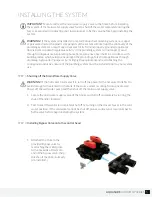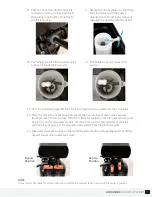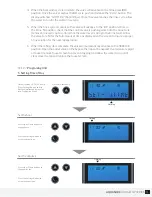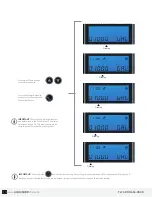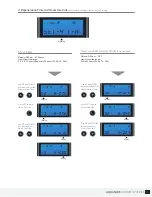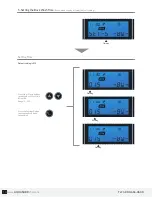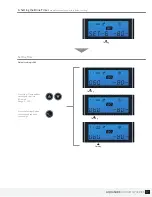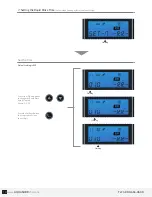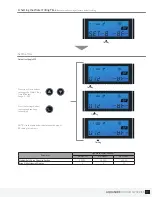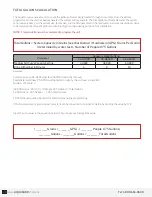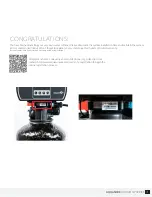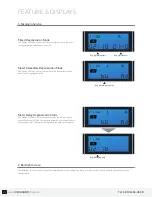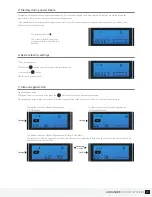
8
www.
AQUASURE
USA
.com
Tel: 1-800-661-0680
STEP 5.
Connecting the System
IMPORTANT!
On copper plumbing systems be sure to install a grounding wire between the
inlet and outlet piping to maintain grounding.
WARNING!
Any solder joints being soldered near the valve must be done before connecting
any piping to the valve. Always leave at least 6” (152 mm) between the control valve and
joints being soldered when soldering pipes that are connected to the valve. Failure to do this
could cause damage to the valve.
1.
The Aquatrol valve is equipped with 1” male
NPT connections. It is recommended that these
connections are made using Teflon tape.
2.
The inlet and outlet can be identified on the
bypass valve. There are arrows stamped in the
bypass valve showing the flow direction. The
arrow pointing toward the valve is the inlet and
the arrow pointing away from the valve is the
outlet.
3.
Apply the Teflon tape onto the bypass inlet and
outlet fittings.
4. Connect the inlet and outlet of the softener using
appropriate fittings.
5. All piping should be secured to prevent stress on
the bypass valve and connectors.
6. Connect the drain hose to the valve by removing
the orange lock clip and push the 1/2” black
tubing into the hole. Pull the drain line to see if it is
secure. Run the drain hose to the nearest laundry
tub or floor drain. This can be ran up overhead
or down along the floor. Drain hose should be a
minimum of 1/2”. If running the drain line more
than 20 ft linear, it is recommended to increase
the hose size to 3/4” and be sure there is no sags
or a “drop” in the hose all the way to the drain
destination.
Note:
A direct connection into a waste drain is not
recommended. A physical air gap of at least 1.5”
Should be used to avoid bacteria and wastewater
traveling back through the drain line into the softener.
7. Connect the brine line to the control valve by
removing the blue locking clips on the brine line
connectors.







